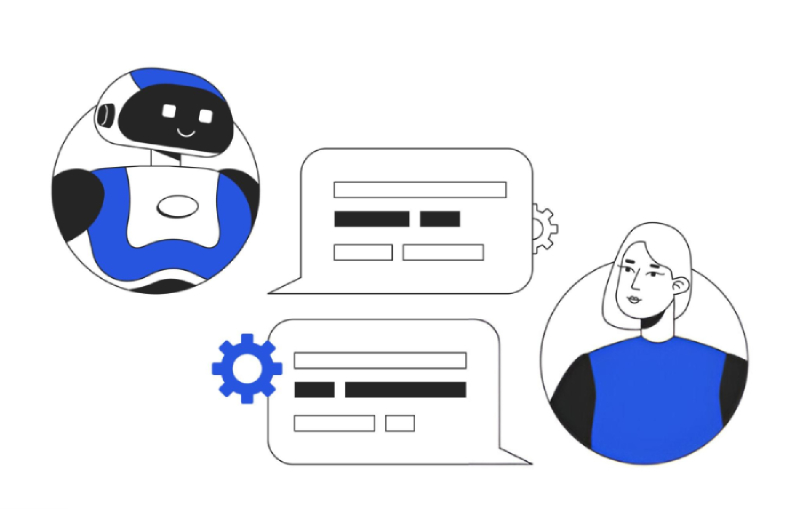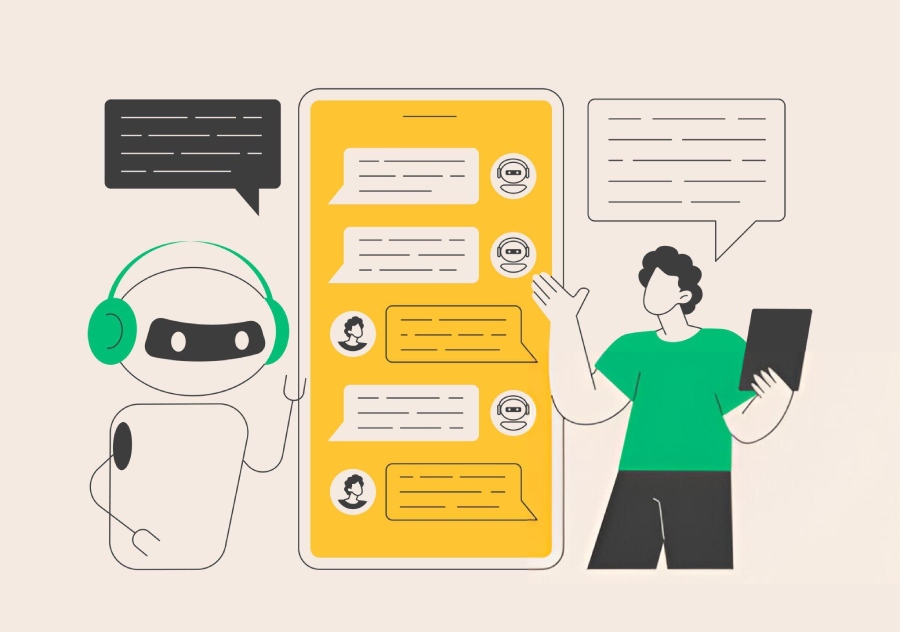AI conversational tools have become popular for both personal and professional use in the last few years. While ChatGPT is highly popular, many other options offer unique features and benefits. These alternatives to ChatGPT can help you communicate better, create generative content, or answer questions. Each tool has its unique advantages.
In this article, we will look at the top 5 artificial intelligence tools for conversation and help you find the best.
Features of a Good Conversational AI Tool
Below are some features that make an artificial intelligence conversational tool a good choice:
1. Conversational ability and language understanding:
A good AI model should be conversational and feel natural and human-like. It should be able to understand different meanings in language, handle complex sentences, and reply in a way that sounds like human conversation.
2. Context Retention and Memory:
Good conversation AI must remember previous parts of the conversation to provide coherent, context-aware replies. This is particularly important in customer support or long chat sessions, where losing context can lead to frustrating or nonsensical interactions.
3. Personalization and Customization:
For AI to feel less robotic, it needs to personalize responses. This could be by adapting its tone or remembering user preferences. The more customizable the AI, the better it can fit specific needs.
4. Scalability and Use Case Flexibility:
An AI model should scale to fulfill both personal and business needs. It should be flexible enough for different users, like simple chatbots or more complex AI tools used in areas like healthcare or finance.
Here are the top 5 ChatGPT alternatives:

1. Google Bard AI:
Bard AI is a smart chat program created by Google. It uses a lot of information from Google to help us find and understand things better.
Key Features: One of Bard’s key advantages is its integration with Google services. By tapping into Google’s powerful search algorithms and data, Bard can provide responses that are highly informed and contextually accurate. It also allows for multistep conversations. This means it remembers its previous responses, which it uses to give better answers.
Pros & Cons: One of the main advantages of Bard is that it can access real-time data and give accurate responses based on facts. However, it still faces some limitations in handling highly nuanced conversations and can sometimes feel more mechanical than human in its interactions.
2. OpenAI Codex
OpenAI Codex is another creation by the OpenAI team. However, it is very different from ChatGPT. While ChatGPT is made for general conversations, Codex is ideal for coding. Moreover, Codex can read and write code in any programming language. This makes it very useful for developers.
Key Features: OpenAI Codex can translate natural language into code, allowing developers to communicate with the system easily using everyday language. This ability of OpenAI Codex makes it stand out from other options. It also supports multiple programming languages. Hence, it can be used for coders across the world.
Use Cases: Codex is ideal for developers needing help with coding, debugging, or even learning new programming languages. It’s also helpful for those who want to automate coding tasks.
3. Replika
Replika is a special AI chatbot made to be more than just a regular chat partner. It acts like a virtual friend. Replika is good at understanding emotions and personalizing the chat experience for every user. This makes it different from other AI models that mainly help with tasks or provide general information.
Unique Features: Replika is great at pretending to understand emotions and build bonds. It helps people feel better by giving them a safe space to talk without being judged. This is why many users choose it for companionship and emotional support.
Pros and Cons: While Replika’s emotional intelligence and personalization are standout features, it may not be ideal for users seeking more factual or task-based conversation models. Its strength lies in fostering connections, not in providing information-heavy responses.
4. Microsoft’s Azure OpenAI
Microsoft’s Azure OpenAI service combines Azure’s strong cloud technology with the conversational abilities of OpenAI models. This solution is designed for businesses that want to improve and grow their AI skills.
Unique Features: Azure OpenAI provides advanced integration with Microsoft’s suite of tools like Office 365 and Teams. It offers the power and flexibility that larger enterprises need, ensuring a secure, scalable AI environment.
Why It’s a Strong ChatGPT Alternative?
For businesses, especially those already using Microsoft tools, Azure OpenAI provides a seamless, robust alternative to ChatGPT. It’s designed for scalability, high availability, and integration with other enterprise solutions.
5. Jasper AI
It is another AI conversational tool that helps create content for marketing. If you are a writer, marketer, or content creator, Jasper AI could be a better option than ChatGPT. It mainly helps you create high-quality written content.
Key Features: Jasper AI allows you to customize its tone and style to match your brand’s voice. It’s an ideal option for those who create blogs, marketing copies, or social media posts. Jasper can be trained to align with your specific style preferences, making it a versatile content assistant.
Use Cases: Jasper AI is the right tool for marketers, content creators, and small businesses who want to automate content creation. It makes the writing process smooth and maintains a human-like conversational tone.

How to Choose the Right ChatGPT Alternative?
- Consider Your Use Case: When choosing the best ChatGPT alternative, the most important consideration is the purpose of what you need it for. Do you want it for casual conversation, coding, or creating content? Each alternative has a different purpose. So, consider your needs and then make a choice.
- Platform Compatibility: It’s also crucial to check whether the AI alternative you’re considering is compatible with your existing platforms or devices. For instance, some models like Azure AI might work best within Microsoft environments.
- Cost and Licensing: Some AI tools are free, but many advanced ones cost money. So, check for their prices, consider your budget, and choose a tool that fits it.
Conclusion
There are many strong alternatives to ChatGPT, each serving different purposes. For example, if you want emotional support, try Replika. For coding-related help, go for the OpenAI Codex. If you need a large-scale solution for businesses, consider Azure OpenAI. The important thing is to consider your needs and what are you trying to achieve.
Author Bio:
Kamini Vyas is an experienced content writer specializing in creating compelling pieces to inform, inspire, or engage her readers. Her work has been published on renowned websites like Huffington Post. She is currently working with iTechnolabs.












Leave a Reply